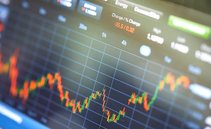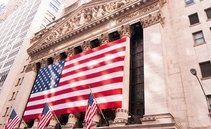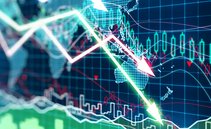Investing in Forex means taking advantage of currency fluctuations. Here is the guide to get started, to choose the Forex broker, and to manage risk with stop loss and take profit orders.

The Forex, short for Foreign Exchange market, is the global currency market. It was created to facilitate commercial transactions, offering extraordinary liquidity and allowing continuous trading in every time zone. But how do you invest in this sector, considered one of the most liquid markets in the world?
In this guide, we see what Forex is and how it works, how to invest and earn with currency pairs, and all the advantages and risks of this type of investment.
What is Forex and how it works
To invest in Forex it is essential to understand what it is and how it works.
The Forex, short for Foreign Exchange market, is the global currency market, where currency pairs are traded. It was created to satisfy commercial needs for currency exchange, facilitating international transactions. Operating through an interbank network across four main centers (London, New York, Sydney, and Tokyo), Forex stands out for its extraordinary liquidity, allowing rapid and continuous trading in every time zone.
Transactions on Forex quotes always involve the simultaneous purchase of one currency (called the "base") and the sale of another (the "counter currency"). For example, EUR/USD 1.0573/1.1.0575 has two prices: the "bid" (purchase price) and the "ask" (sale price). The difference between the two is the "spread", i.e. the cost of the operation.
Overall, Forex is a dynamic and crucial market for the global economy, allowing traders to profit from changes in exchange rates
How to invest in Forex
To understand how to invest in Forex, let’s consider a practical example of trading on the euro/dollar currency pair (EUR/USD). Suppose the exchange rate is 1.0575, which means that 1 euro is worth 1.0575 US dollars. So, to buy 1 euro, you need to pay 1.0575 dollars.
If an increase in the value of the euro is expected, a buy position is opened; if a decrease is expected, a sell position is opened. A standard lot in Forex represents 100,000 units of a currency, for example buying one lot of EUR/USD means getting 100,000 euros in exchange for US dollars. Traders often use leverage to invest a fraction of their total capital, limiting financial exposure. However, trading with leverage involves risks, as losses can exceed the initial amount invested. You can also opt for smaller lots, such as micro (1,000) and mini (10,000), offering more flexible investment options.
leggi anche
USD/JPY, why is the Japanese yen dropping?

Another way to manage risk is to establish stop loss and take profit levels. In Forex, price changes are measured in pips, and in the case of EUR/USD, one pip equals 0.0001. For example, by opening a buy position at 1.0575, you can set a stop loss at 1.0550 to limit losses. If the market drops to this level, you will lose 25 pips, equivalent to $250. At the same time, you can set a take profit at 1.0600 to secure a profit when the price reaches that level, resulting in 25 pips ($250) of profit.
Stop losses and take profits automate risk management, providing security in trades. It is always recommended to be informed and updated and to adopt a strategy calibrated to your level of risk.
How to invest in Forex with CFDs
Investing in Contracts for Difference (CFDs) on the Forex (Foreign Exchange) market is a popular choice for those looking for opportunities in currency trading. CFDs allow investors to speculate on exchange rate fluctuations without having to actually own the underlying currencies. This type of investment offers a number of benefits, such as access to a wide range of currency pairs from around the world and the ability to trade with leverage. Leverage allows investors to increase market exposure with limited capital, potentially increasing profits.
However, it is important to note that investing in Forex CFDs also carries significant risks. The Forex market is known for its volatility and can undergo abrupt changes due to economic, political, or social events. Leverage can amplify both profits and losses, so you need a solid understanding of financial markets, currency dynamics, and technical and fundamental analysis tools. Furthermore, it is advisable to adopt an effective risk management strategy, which includes limiting losses using stop losses and taking profits.
leggi anche
How to invest on the S&P 500, a complete guide

What are Forex brokers
Forex brokers play a crucial role in the currency market, acting as intermediaries who facilitate the buying and selling of currencies on behalf of clients allowing them to trade in the global currency market 24 hours a day 24. Many brokers offer the option to open a demo account without any initial investment, thus providing a safe learning environment before starting to trade with real money.
Depending on the type of brokerage, there are various types of accounts, including ECN accounts, STP accounts, fixed spreads, and variable spreads. In general, the best Forex brokers try to keep costs down to stay competitive, but clients will still incur some fees, such as the spread, during transactions.
For those who prefer a more independent approach, discount brokers offer lower commissions but do not provide consulting, research, or planning services. They handle only the operations requested by customers, with the possibility of further reducing costs as the volume of transactions increases. However, with this choice, clients must take responsibility for managing their own portfolios independently.
What are Forex times
Forex is a global market that operates 24 hours a day, Monday to Friday, ensuring continuity in currency transactions. Trades are active from 22:00 GMT Sunday to 22:00 GMT Friday, allowing for uninterrupted trading opportunities.
The Forex market is divided into three macro sessions (European, American, Asian) and five "markets" corresponding to reference hubs:
- Frankfurt (Europe): 8:00 - 16:00
- London (Europe): 9:00 - 17:00
- New York (United States): 14:00 - 22:00
- Sydney (Australia): 24:00 - 6:00
- Tokyo (Japan): 1:00 - 7:00
During these sessions, there is high liquidity and volatility in the currencies associated with the respective trading areas. For example, during the European session, from 8:00 to 17:00, the euro (EUR) and British pound (GBP) are most frequently traded, while during the American session, from 1:00 to 10:00 p.m. trading on dollar (USD) currency pairs is intensifying.
Forex operates seamlessly due to its decentralized nature, differentiating itself from other exchanges that have a physical location. Based on a network of computers operated by global banks and brokers, it makes trading accessible and convenient for traders anywhere in the world.
leggi anche
What are financial markets, explained in detail

Who operates in the Forex market
The Forex market involves a wide range of participants, from banks and private investors to traders and institutional investors. This diversity is what makes Forex so dynamic and accessible. Here are the main players in this market:
- Private investors who operate with online trading;
- Banks and credit institutions;
- Investment funds;
- Private and multinational companies.
Investing in Forex is open to a wide range of participants, even on an individual level. However, it is important to gain a thorough understanding of how financial markets work and the online platforms that host such exchanges before getting started. Forex trading takes place exclusively online, and on virtual platforms, and it is essential to fully understand how the market works to avoid reckless investments and financial losses.
How to make money with Forex
Making money with Forex is possible but requires commitment, preparation, and discipline. This form of investment is based on the fluctuation of currencies, allowing you to profit from changes in their values.
However, it is important to underline that there is no such thing as easy money.
Results in Forex depend on several factors, including:
- Initial Capital : The amount you start investing with directly affects your potential profits. Higher capital offers greater earning opportunities.
- Level of preparation: Solid preparation, including experience on demo accounts, increases the chances of success in forex trading.
- Choice of broker: choosing a reliable broker suited to your needs can make a difference in the profitability of your operations.
- Dedicate time and effort: the time dedicated to trading affects your earnings. Operating as a hobby will have different results than those who dedicate more time and attention.
- Experience: years of practice and the accumulation of experience are crucial to achieving significant gains in forex.
- Propensity for risk: managing risk is crucial. Some traders prefer more conservative strategies, while others are willing to risk more for potentially higher profits.
In summary, earning in forex is possible, but requires commitment, study, and careful risk management. There is no quick way to make consistent profits in forex trading.
What are the advantages of Forex
Investing in Forex offers a number of advantages that make it an interesting option for many traders:
- High liquidity which facilitates the conversion of investments into cash.
- Transaction fees generally low, allowing you to maximize your earnings.
- Size of the market that provides some protection from speculators and stabilizes operations.
- Possibility of using financial leverage to negotiate amounts greater than the invested capital.
- leverage can increase potential gains, but must be managed carefully to avoid amplifying losses.
- Important diversification of currency pairs and financial instruments for greater flexibility in investments.
- Trading opportunities 24 hours a day, five days a week, offering unparalleled time flexibility.
What are the risks of Forex
Forex, like many other financial markets, involves a certain degree of risk. While even the most conservative investments are not immune to potential losses, Forex trading is often associated with a more speculative approach, meaning the risks can be more apparent. This should not scare aspiring traders, as several factors can help mitigate such risks.
First, many of the best Forex brokers allow you to start with a relatively low minimum investment, often around 250 euros. Secondly, money management is fundamental: dividing the capital into small tranches and using only a part of it for each operation helps to limit losses in case of problems. Finally, using “stop loss”, a preset maximum loss level on each trade, is an effective strategy for controlling risks. However, many beginners neglect this important safety measure, often to the detriment of their investments.
Original article published on Money.it Italy 2023-10-28 14:11:02. Original title: Come investire nel Forex, il mercato delle valute?




